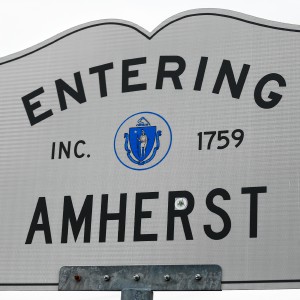Beacon Hill Roll Call, May 29-June 2
| Published: 06-13-2023 9:45 AM |
THE HOUSE AND SENATE: Beacon Hill Roll Call records local senators’ votes on roll calls from the recent debate on the Senate’s version of a $55.9 billion fiscal 2024 state budget.
SEND 90 PERCENT OF CAPITAL GAINS TAX REVENUE ABOVE $1 BILLION TO THE RAINY DAY FUND (S 3): Senate 3-36, rejected an amendment that would maintain the current 90/5/5 law under which 90 percent of the capital gains tax collections exceeding $1 billion goes to the Rainy Day Fund, 5 percent to the State Retiree Benefits Trust Fund and 5 percent to the State Retiree Benefits Trust Fund. The amendment would replace a pending 60/20/20 proposal that would send, in fiscal 2024 only, 60 percent of the $1 billion excess to the Rainy Day Fund while sending 20 percent to the State Retiree Benefits Trust Fund and 20 percent to the State Pension Liability Fund.
Amendment supporters said it is essential to provide 90 percent to the Rainy Day Fund which helps bail out the state during slow economic times when tax revenues shrink.
Article continues after...
Yesterday's Most Read Articles
 More than 130 arrested at pro-Palestinian protest at UMass
More than 130 arrested at pro-Palestinian protest at UMass
 Public gets a look at progress on Northampton Resilience Hub
Public gets a look at progress on Northampton Resilience Hub
 Northampton bans auto dealerships near downtown; zone change won’t affect Volvo operation on King Street
Northampton bans auto dealerships near downtown; zone change won’t affect Volvo operation on King Street
 UMass basketball: Bryant forward Daniel Rivera to be Minutemen’s first transfer of the offseason
UMass basketball: Bryant forward Daniel Rivera to be Minutemen’s first transfer of the offseason
 Town manager’s plan shorts Amherst Regional Schools’ budget
Town manager’s plan shorts Amherst Regional Schools’ budget
 Police respond to alcohol-fueled incidents in Amherst
Police respond to alcohol-fueled incidents in Amherst
Sen. Bruce Tarr (R-Gloucester), the sponsor of the amendment, did not respond to repeated requests by Beacon Hill Roll Call asking him to comment on his amendment.
Amendment opponents said the Rainy Day Fund is flush with $7 billion and argued these retiree and pension funds are currently underfunded and need some additional money for just one year.
Senate Ways and Means Chair Sen. Mike Rodrigues (D-Westport) did not respond to repeated requests by Beacon Hill Roll Call asking him to comment on his opposition to the amendment.
(A “Yes” vote is for maintaining the current 90/5/5 formula. A “No” vote is for the 60/20/20 formula.)
Sen. Joanne Comerford No Sen. Paul Mark No Sen. Jacob Oliveira No Sen. John Velis No
$1 MILLION FIGHT HUNGER ON COLLEGE CAMPUSES (S 3)
Senate 39-0, approved an amendment that would provide $1 million to support a hunger-free campus initiative to address food insecurity at public colleges and junior colleges.
“Unfortunately, too many students at our state 2- and 4-year colleges are food insecure,” said sponsor Sen. Joan Lovely (D-Salem). “This $1 million will support on-campus programming to address food insecurity, like mobile markets, SNAP enrollment assistance and more. I am grateful that the Senate recognizes the critical importance of addressing this issue. No one should have to learn on an empty stomach.”
(A “Yes” vote is for the $1 million.)
Sen. Joanne Comerford Yes Sen. Paul Mark Yes Sen. Jacob Oliveira Yes Sen. John Velis Yes
$300,000 FOR DRINK SPIKING CRISIS (S 3)
Senate 39-0, approved an amendment that would provide $300,000 for the state to develop, research and recommend strategies to address the rising incidence of reported drink spiking in the Bay State. The funds could also be used for a public awareness campaign about drink spiking and the bulk purchase of drink spiking test kits to be distributed at bars, restaurants and other nightlife establishments across the state.
Drink spiking is when a person adds alcohol or other drugs to someone’s drink without their knowledge. This can lead to many things including sexual assault or the intent to hurt or steal from the person.
“Over the last year alone the commonwealth has seen an alarming increase in the number of reported drink spiking incidents at bars, nightclubs, concert venues and even house parties across the commonwealth,” said sponsor Sen. Paul Feeney (D-Foxborough). “These incidents are all too common and we’ve seen countless warnings from law enforcement: ‘use the buddy system, cover your drink and don’t leave your drink unattended.’ Yet reports of these incidents persist and the commonwealth’s response is still catching up to the onslaught of these reports.”
(A “Yes” vote is for the $300,000.)
Sen. Joanne Comerford Yes Sen. Paul Mark Yes Sen. Jacob Oliveira Yes Sen. John Velis Yes
ADDITIONAL $400,000 FOR THE PREVENTION OF HATE CRIMES (S 3)
Senate 39-0, approved an amendment that would increase funding by $400,000 (from $400,000 to $800,000) for grants to schools for the prevention of hate crimes and incidences of bias in public schools. The grants would be used for education, professional development, prevention or community outreach, prioritizing schools that have experienced hate crimes or incidences of bias within the last two years.
“With skyrocketing incidences of hate crimes and bias against people of color, LGBTQ+ individuals, Jewish people and other minority groups, these programs are now more important than ever,” said sponsor Sen. Mike Moore (D-Millbury). “Addressing misinformed beliefs during children and teens’ formative years is the best strategy for preventing discriminatory behavior down the road, Hate has no home here in Massachusetts – I’m pleased to have received my colleagues’ support on this critical funding.”
(A “Yes” vote is for the additional $400,000.)
Sen. Joanne Comerford Yes Sen. Paul Mark Yes Sen. Jacob Oliveira Yes Sen. John Velis Yes
ALSO UP ON BEACON HILL
PURCHASE ALCOHOL (H 369) – The Consumer Protection and Professional Licensure Committee held a hearing on a bill that would allow liquor and retail store clerks to accept a valid photographic, non-duplicate motor vehicle license issued by other states as a valid form of ID to purchase liquor in the Bay State.
“The commonwealth invites people from across the country to our sporting and live events, as well as to vacation and tour our historical sites,” said sponsor Rep. Paul McMurtry (D-Dedham). “It only makes sense that we allow our licensees to be able to serve these individuals using their state identification. In addition, this will give our businesses and restaurants additional sales and help them recover from losses during the pandemic.”
HIGHER EDUCATION HEARING – The Higher Education Committee held a hearing on several bills including:
PROTECT STUDENTS STUDYING ABROAD (S 820) – Would require high schools and colleges with programs that allow students to study abroad to prioritize health, safety and security in program development, implementation and management of study abroad programs. These programs would be required to conduct risk assessments for different portions of the program; establish protocols in case of an emergency; and provide statistics on any assaults, injuries or deaths that occur in these programs. Parents would be able to access this information to better understand whether a program is right for their child.
“Study abroad programs provide valuable lessons and lifelong memories for students across our state, but we must ensure schools are responsible and care for our children’s safety,” said sponsor Sen. Sal DiDomenico (D-Everett). “By establishing safety and transparency protocols, I am confident that passing this legislation will help protect Massachusetts students learning abroad.”
REQUIRE NARCAN IN COLLEGE DORMS AND HOUSING (S 849) – Would require all state universities that have dormitories or other housing for students to have Narcan or similar opioid antagonists in each college-operated housing building. Narcan is an emergency treatment used for the complete or partial reversal of opioid overdose.
The bill would also require that all resident assistants (Ras) employed by the school be trained in the administration of Narcan.
“Massachusetts set a new record high for overdose deaths in 2021, with 2,290 lives tragically lost,” said sponsor Sen. John Velis (D-Westfield). “Opioid antagonists like Narcan continue to be our best tool to reverse overdoses when they occur and this legislation would help expand access to this critical medication on college campuses throughout our state.”
COLLEGES MUST MAINTAIN CERTAIN STANDARDS TO RECEIVE ANY STATE FUNDS FOR SCHOLARSHIPS OR FINANCIAL AID (S 830) – Would make colleges with undergraduate graduation rates of less than 30 percent or with an above average rate of students who default on student loans ineligible to receive state scholarship and financial aid funds.”
“I filed [the bill] because there are no safeguards in place to prevent state financial aid from being diverted to underperforming institutions, representing a significant disservice to taxpayers and to our students,” said sponsor Sen. Edward Kennedy (D-Lowell).
QUOTABLE QUOTES – DAIRY FARMS BY THE NUMBERS EDITION
The Massachusetts Dairy Promotion Board in conjunction with the Massachusetts Department of Agricultural Resources announced dairy promotion grants to fund projects that will advance the image, sale of and demand for local dairy products.
These projects include education initiatives to Massachusetts communities on the importance and nutritional benefits of dairy products. In addition, the projects are designed to make greater awareness of the contributions of the state’s dairy farmers and provide more resources to schools to support the consumption of Massachusetts dairy products.
“For generations, Massachusetts dairy farmers have prided themselves on producing the finest dairy products,” said Massachusetts Department of Agricultural Resources Commissioner Ashley Randle. “As someone who grew up on a fifth-generation dairy farm in Western Massachusetts, I’ve seen the challenges that our dairy producers face. These promotional grant awards will go a long way to help educate and inform consumers about the environmental, economic, and nutritional qualities of dairy products and highlight how Massachusetts dairy farmers are continuing to lead by example with respect to climate change adaptations and clean energy solutions.

 State Senate budget funds free community college for all
State Senate budget funds free community college for all ‘We can just be who we are’: Thousands show support for LGBTQ community at Hampshire Pride
‘We can just be who we are’: Thousands show support for LGBTQ community at Hampshire Pride Doors open at Tilton Library’s temporary home at South Deerfield Congregational Church
Doors open at Tilton Library’s temporary home at South Deerfield Congregational Church Area property deed transfers, May 2
Area property deed transfers, May 2
